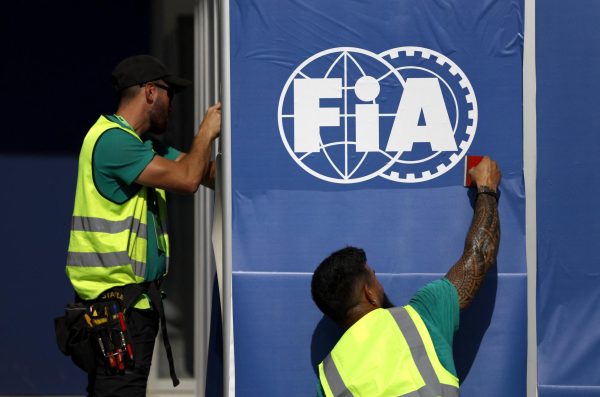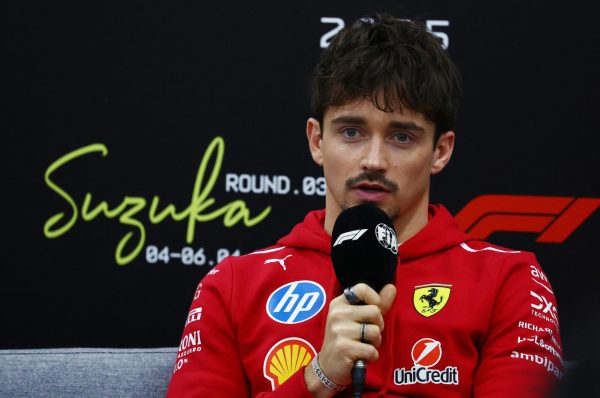“Racing is not just a sport; it’s a way of life,” said Nelson Piquet, one of Formula One’s most iconic and controversial champions of the 1980s.
Piquet, like many modern drivers, embodies how a sport measured in milliseconds thrives on raw emotions. In Formula One, passion fuels everything, from the tension in the pit lane to the split second decisions at 200 miles per hour.
Yet, a new rule set by the Fédération Internationale de l’Automobile (FIA) seems at odds with the very passion that fuels F1.

As part of the 2025 update to the International Sporting Code, the FIA now classifies punishable misconduct to include “the general use of language (written or verbal), gesture and/or sign that is offensive, insulting, coarse, rude or abusive and might reasonably be expected or be perceived to be coarse or rude or to cause offense, humiliation or to be inappropriate.”
In short, swearing, even in the heat of the moment, is completely off limits.
While this aims to uphold professional conduct when on air, it risks sanitizing the raw, unfiltered emotion and intensity that defines racing at its core. It risks stripping away the very authenticity that makes F1 compelling.
Spontaneous, emotionally charged radio messages have long been a part of the sport’s drama. When the drivers react with frustration, excitement, or even sarcasm, fans get an unfiltered glimpse into what it means to compete at the highest level of what has been deemed “the pinnacle of motorsport.”
And that’s exactly what fans want.
From Kimi Räikkönen’s legendary “Leave me alone, I know what I’m doing,” to Sebastian Vettel’s outburst over controversial calls, these unscripted moments have become iconic. They humanize the athletes and remind fans that behind the helmets are individuals with personalities, frustrations, and hearts pounding, just like the rest of them.
“In other sports, people say things but they don’t have a mic attached to their mouths,” Max Verstappen, a current driver and four time World Champion, said.
This authenticity keeps the fans connected and engaged. Letting the audience see the drivers’ personalities has helped grow the fan base in ways that other sports with more players aren’t able to.
This is not a sport of stoic silence, it’s one of adrenaline and imperfection, and that’s part of the appeal.
F1 is a global sport, and sure, profanity doesn’t translate the same way in every culture. What might be considered harmless venting in the Netherlands or Australia could be extremely inappropriate elsewhere.
While the cultural disconnect is a fair point, it is one that the FIA had already addressed by providing regional broadcast filters and versions of the race made for different audiences, like F1 Kids or edited commentary feeds on family friendly channels.
“Excuse me for the language, but come on, what are we? Five-year-olds? Six-year-olds? Even if a five-year-old or six-year-old is watching, I mean, they will eventually swear anyway,” Verstappen said in an interview.
A universal censorship standard for a culturally diverse sport is shortsighted and not a suitable solution. It puts a one size fits all moral code on a grid full of global personalities, erasing the very diversity that the sport claims to celebrate.
It’s also very hard to ignore the double standard. The FIA often picks and chooses which rules to enforce with intense scrutiny. Controversial penalties for unclear infractions, like unsafe pit releases or vague track limits, have become increasingly apparent in recent seasons.
Instead of fixing cryptic safety regulations or inconsistent stewarding, the FIA has chosen to focus on tone policing.
Take the inconsistency in recent penalties as an example. When Max Verstappen or Charles Leclerc express frustration mid race, they now face the risk of fines, community service, or even suspensions, while more crucial sporting or safety related issues continue to go unresolved.

The backlash isn’t just about emotion, it’s also about perception. Seven time world champion Lewis Hamilton pointed out that rules like these might carry unintentional racial connotations.
Speaking openly, he questioned whether cultural expression, particularly from Black drivers or those from non-European backgrounds, was being unfairly scrutinized under the guise of “professional conduct.”
The conversation gained more traction when FIA president Mohammed Ben Sulayem made a remark comparing Hamilton’s expressive style to that of a rapper.
“We have to differentiate between our sport—motorsport—and rap music. We’re not rappers, you know. They say the F-word how many times per minute? That’s them and we are [us],” Sulayem said in an interview.
This comment drew widespread criticism for reinforcing stereotypes. Many fans and commentators noted that the association between emotional expression and race shouldn’t be ignored, especially in a sport that has long struggled with diversity and inclusion.
“I don’t like how he’s expressed it. Saying ‘rappers’ is very stereotypical and if you think about it, most rappers are Black. So he really pointed it towards ‘We’re not like them.’ I think that was the wrong choice of words. There’s a racial element there,” Hamilton said in an interview with Motorsport.com.
This kind of rhetoric raises many valid concerns about how certain drivers are perceived and policed differently based on cultural background. When a governing body starts to regulate how passion is expressed without understanding the context behind it, that’s not just tone deaf, it’s discriminatory.
So where does this end? If emotion becomes a punishable offense, what’s next? Fines for sarcasm? Time penalties for showing frustration in post-race interviews?
Formula One is not a polished PR product. It’s a sport, and sports are messy.
They are supposed to be.
Sanitizing the experience risks turning F1 into little more than a marketing stunt. It’s a slippery slope, and if the FIA truly wants to preserve the integrity of the sport, it should focus less on censoring emotion and more on ensuring fair, transparent supervision where the rules are clear, consistent, and meaningful.
Let the drivers be real. Let them be raw.
If we wanted censorship and fake smiles, we’d watch a press conference, not a Grand Prix.